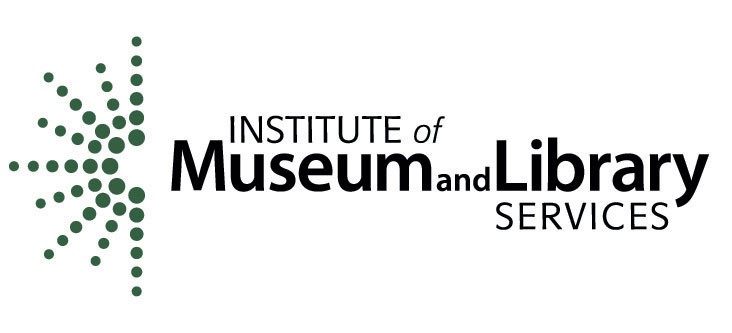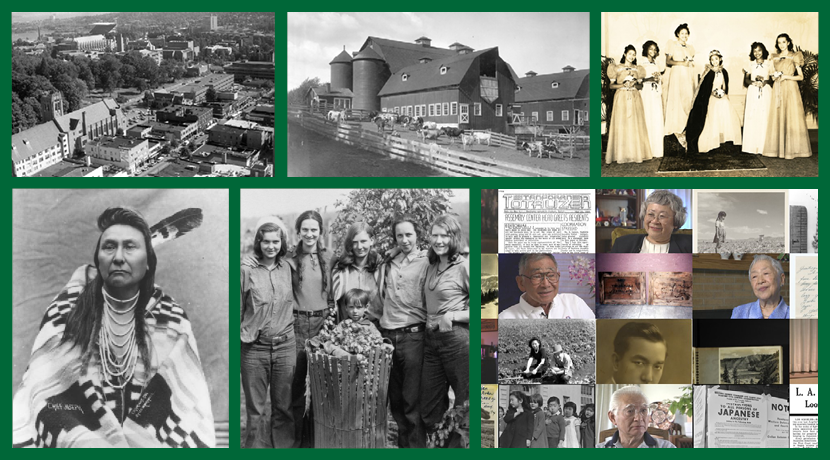
NEW PARTNERSHIP GIVES PACIFIC NORTHWEST DIGITAL COLLECTIONS A WIDER AUDIENCE
A new Washington-Oregon partnership is helping cultural institutions across the Pacific Northwest make their digital archives more visible and accessible nationwide.
Northwest Digital Heritage (NWDH), a Washington State Library, State Library of Oregon, and Oregon Heritage Commission collaboration, is leveraging the infrastructure and best practices of the Washington Rural Heritage project to expand public access and visibility to cultural heritage organizations in the Pacific Northwest.
NWDH operates as a service hub of the Digital Public Library of America (DPLA), which helps bring the priceless, local collections of libraries, museums, research institutions, historical societies, and other organizations to a wider audience. DPLA is a large-scale public digital library of copyrighted, public-domain, and openly licensed digital content featuring cultural heritage items from around the country.
“Cultural heritage organizations have been digitizing archival and special collections for more than two decades, but many of these collections are dispersed across the internet in multiple locations,” said Washington State Librarian Sara Jones. “Northwest Digital Heritage combines state and local resources to give archivists, historians, researchers, teachers, students, journalists, and the general public throughout the country easier and more convenient access to our historical treasures.”
“We are thrilled to add Northwest Digital Heritage to the DPLA network. These collections, in particular those that document the Asian American and indigenous experiences in the Pacific Northwest, represent an important piece of our American story and bolster our efforts to enable open access to artifacts that document the full breadth of our nation’s history,” said Shanée Yvette Murrain, DPLA’s director of community engagement.
People who visit DPLA’s website at dp.la can search among millions of items by more than 40 service hubs comprising over 4,000 contributing entities. Oregon and Washington content, which includes more than 80,000 items, can be viewed here.
More than 70 cultural heritage institutions are contributing to DPLA through NWDH. These include Multnomah County Library; Oregon Historical Society; The Seattle Public Library, Spokane Public Library; Yakima Valley Libraries; State Library of Oregon; and Washington State Library’s Washington Rural Heritage program, which is a community digitization model that will be expanded to Oregon through this partnership.
Highlights include:
Densho is a grassroots organization dedicated to preserving and sharing the story of World War II-era incarceration of Japanese Americans, with the goal of deepening the understanding of American history and inspiring action for equity. This collection includes tens of thousands of photographs, documents, letters, and other primary sources from cultural institutions and private contributors. Of particular note are video oral history interviews, and newspapers — such as the North Portland Evacuazette — created at assembly and relocation centers.
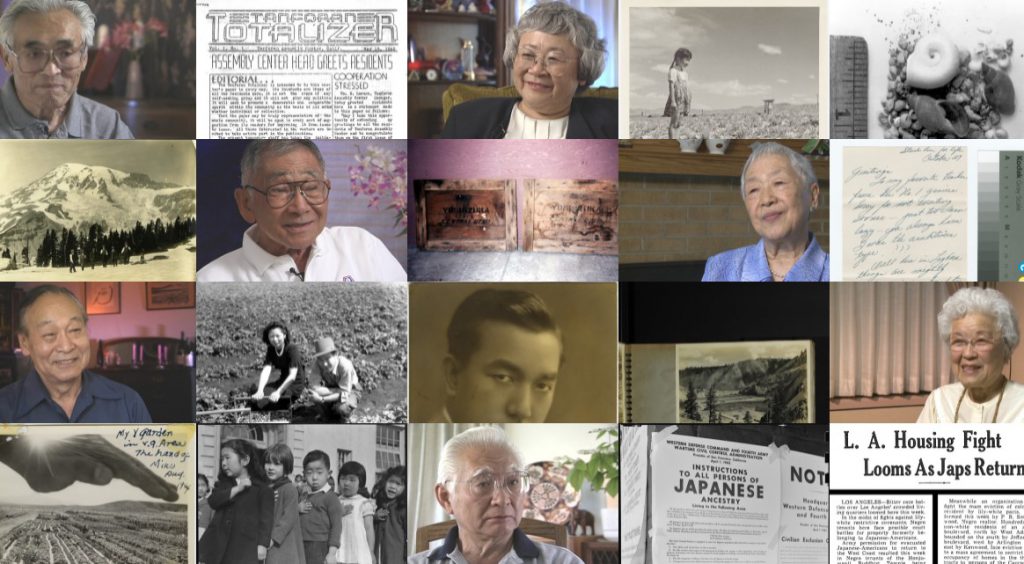
Hops and Flax: Pride of the Willamette Valley
By 1905, Oregon was the leading producer of hops in the United States, bittering one in 10 pints of beer produced worldwide. Flax, which was used for linen, twine, fishing nets, linseed oil, and cattle feed, was also an important early crop of the Willamette Valley. The publications and photos, part of the State Library of Oregon’s Digital Collections, document these two specialty crops of the Pacific Northwest. Also check out Multnomah County Library’s excellent beer label collection.
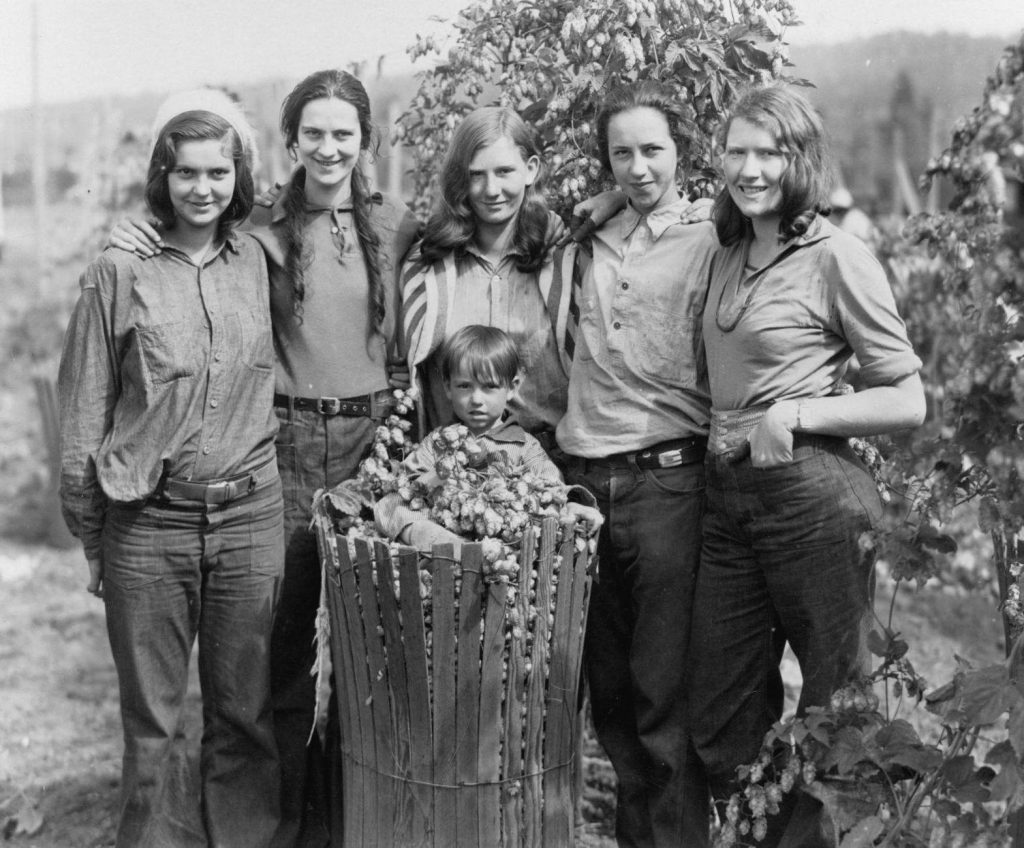
Ida Nelson and Kittitas County Crossroads Collections
These collections document tribal peoples of Central Washington with a focus on the Kittitas Band of Indians, the Yakama Nation, and the traditional use of the Central Washington region as a meeting point for native peoples from throughout the Columbia River Basin and Inland Northwest. This collection is from the Ellensburg Public Library’s Ellensburg Heritage Collection, part of Washington State Library’s Washington Rural Heritage program.
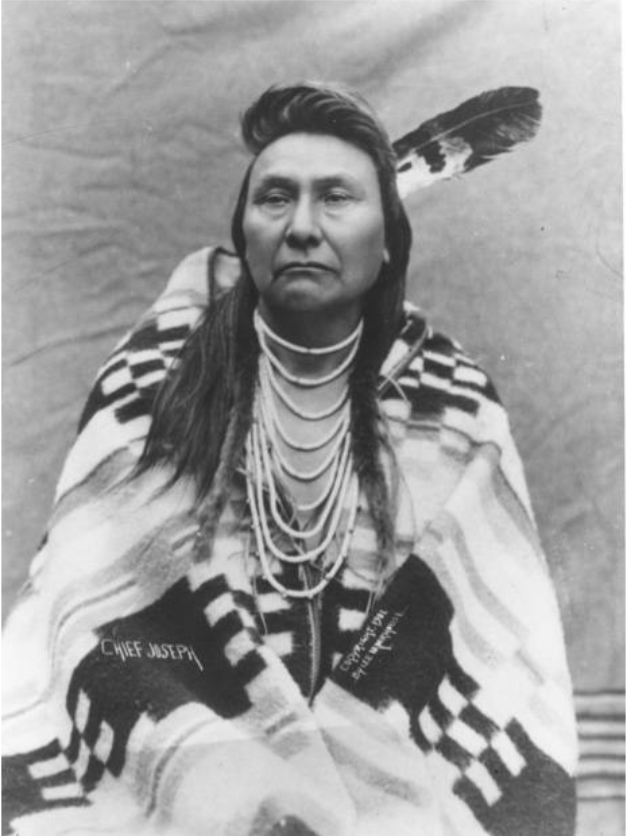
A celebration of Black life in Oregon, the Our Story Collection documents civic organizations, social clubs, Black churches, and family life as integral to building the Black community. Of note are records detailing the city of Vanport, Ore., which saw an influx of Black industrial workers during World War II. Issues of the Voice of Vanport newsletter provide a look into community life during the 1940s. Another highlight is “Where the Heart Is,” a film describing the diverse experiences of Black Portlanders.
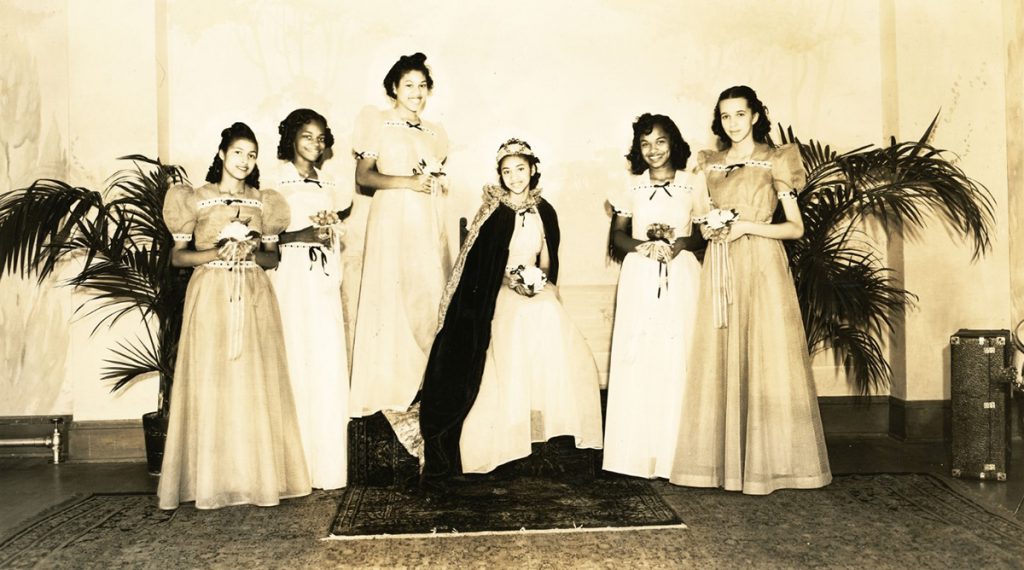
Seattle Historic Photograph Collection
With more than 3,000 photos documenting Seattle’s history from the 1850s through the 1980s, this collection features the work of well-known Pacific Northwest photographers such as Asahel Curtis. Of interest are photos of the Great Fire of 1889, Golden Potlatch festivals of the early 20th century, and large-scale regrade projects that altered Seattle’s naturally hilly landscape. This collection comes from The Seattle Public Library’s Special Collections Online.
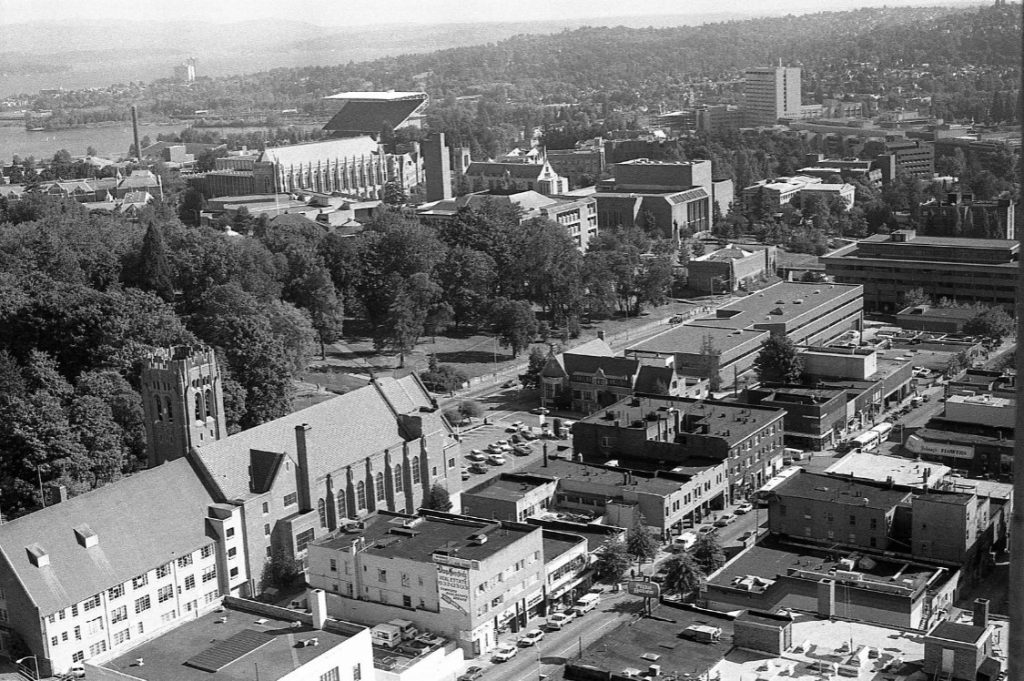
Whitman County Heritage Collection
This collection includes materials from more than a dozen local museums and over 150 family collections. Managed by the Whitman County Library, the Whitman County Heritage Collection offers a broad look at life in the Palouse Region of Eastern Washington. Agriculture reigns supreme in a county that produces more barley, wheat, dry peas, and lentils than any other in the United States. Part of Washington State Library’s Washington Rural Heritage program.
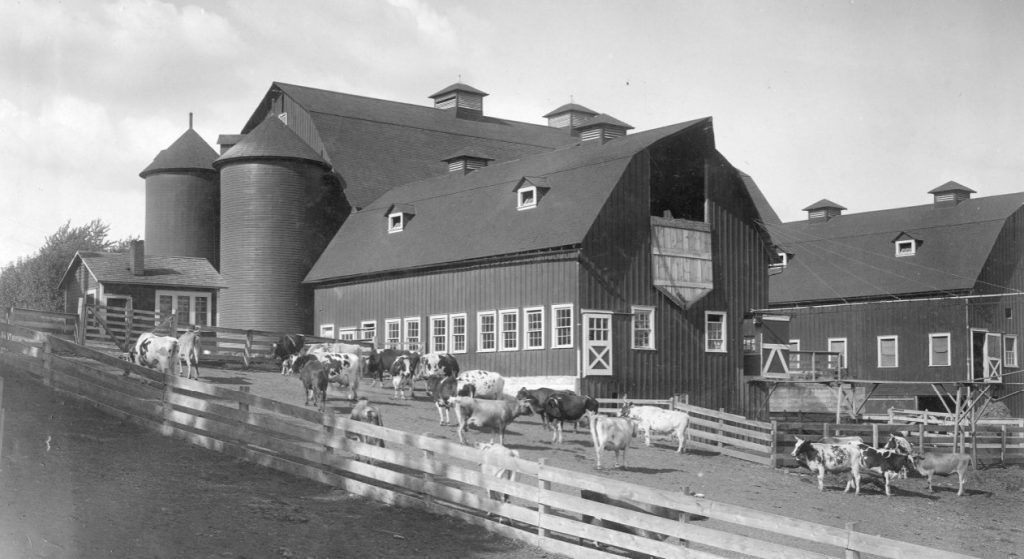
More organizations and institutions are expected to join NWDH later this year and next.
NWDH receives Library Services and Technology Act (LSTA) funding from the Institute of Museum and Library Services (IMLS). The Oregon and Washington state libraries administer these funds to enhance library services throughout the region, including providing grant opportunities for libraries. Additional funding is provided through the Oregon Parks and Recreation Department, Oregon Heritage Commission, and Oregon Cultural Trust.
About the Institute of Museum and Library Services
The Institute of Museum and Library Services is the primary source of federal support for the nation’s libraries and museums. We advance, support, and empower America’s museums, libraries, and related organizations through grantmaking, research, and policy development. Our vision is a nation where museums and libraries work together to transform the lives of individuals and communities. To learn more, visit www.imls.gov and follow us on Facebook and Twitter.
